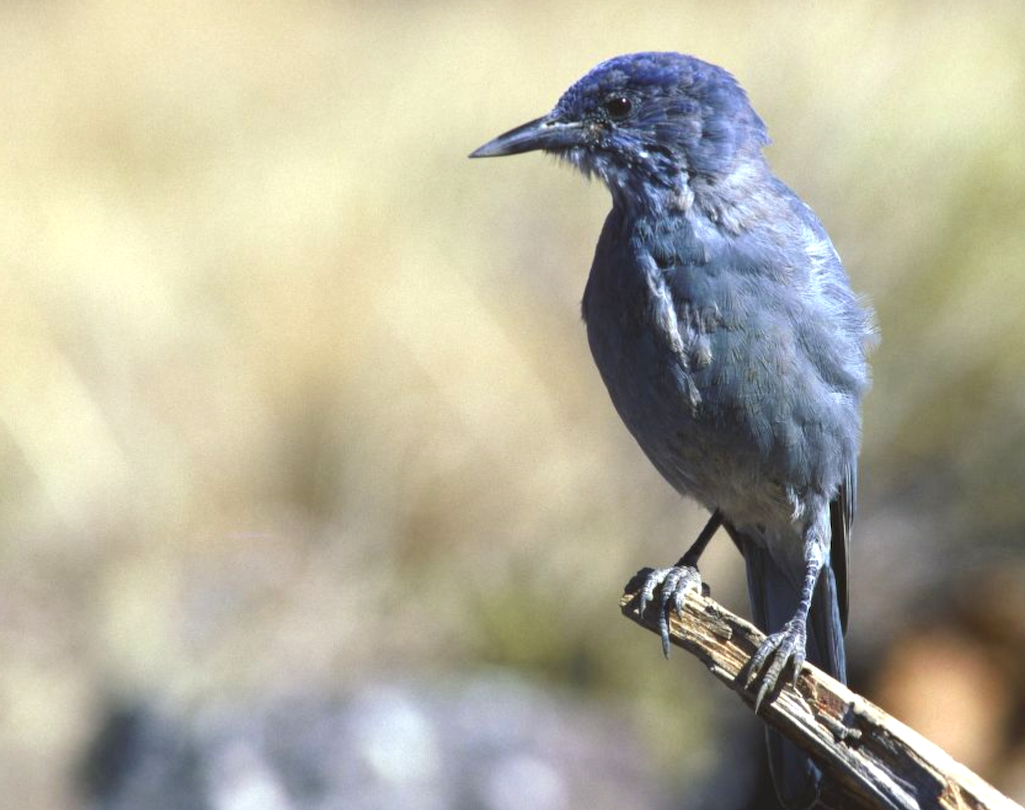
The U.S. Fish and Wildlife Association has agreed to determine whether the Pinyon jay needs protection under the Endangered Species Act/USFWS
U.S. Fish and Wildlife Service officials have agreed to conduct a status review on Pinyon jay populations in the West to determine whether the species needs protection under the Endangered Species Act.
Defenders of Wildlife, which petitioned the agency more than a year ago to conduct the review, said Wednesday that Pinyon jay populations have dropped by 85 percent over the past 50 years. The species is experiencing a precipitous decline throughout the western United States due, in part, to the loss and degradation of its piñon-juniper woodlands habitat, according to the group.
“This decision moves us one step closer to reversing the trend of one of the fastest declining birds in North America,” said Peggy Darr, Defenders of Wildlife New Mexico representative. “Without pinyon jays, we stand to lose iconic Southwestern landscapes, cultures and cuisines intimately tied to piñon pine nuts. As someone who lives in pinyon jay country, I would eternally miss seeing and hearing exuberant pinyon jay flocks flying overhead as they conduct their daily business, as well as the survival of an entire ecosystem.”
A species warrants ESA protection if it is determined to be endangered or threatened in all or a significant portion of its range based on any one or combination of five factors. The Pinyon Jay satisfies several of the factors set forth in the ESA such as habitat destruction, the inadequacy of state and federal legal protections, and other man-made factors.
The pinyon jay is a charismatic, social bird that travels in large flocks and plays a significant role in maintaining the biodiversity of the West. The range of the pinyon jay includes 13 states. It facilitates piñon pine tree regeneration by extracting and burying the seeds, commonly known as pine nuts. The birds do not retrieve all their cached seeds, allowing the seeds to germinate and replenish the woodlands. Without pinyon jays, it's not clear that the piñon pine tree would continue to persist.
“If we lose one, we lose the other,” said Darr “If we lose pinyon jays, we erase from our Earth a species that has evolved to be one of the most genetically distinct and ecologically important species in North America.”

 Support Essential Coverage of Essential Places
Support Essential Coverage of Essential Places







Comments
Good news!